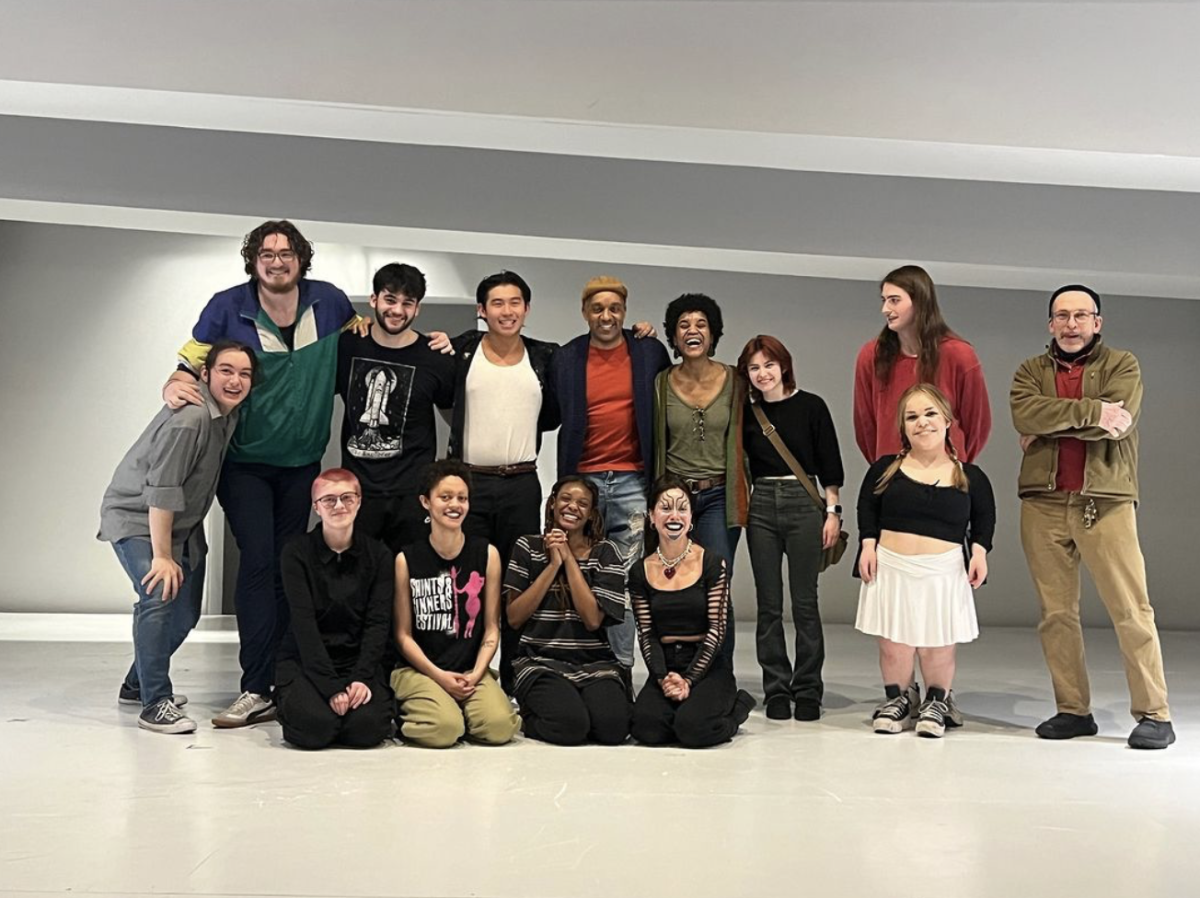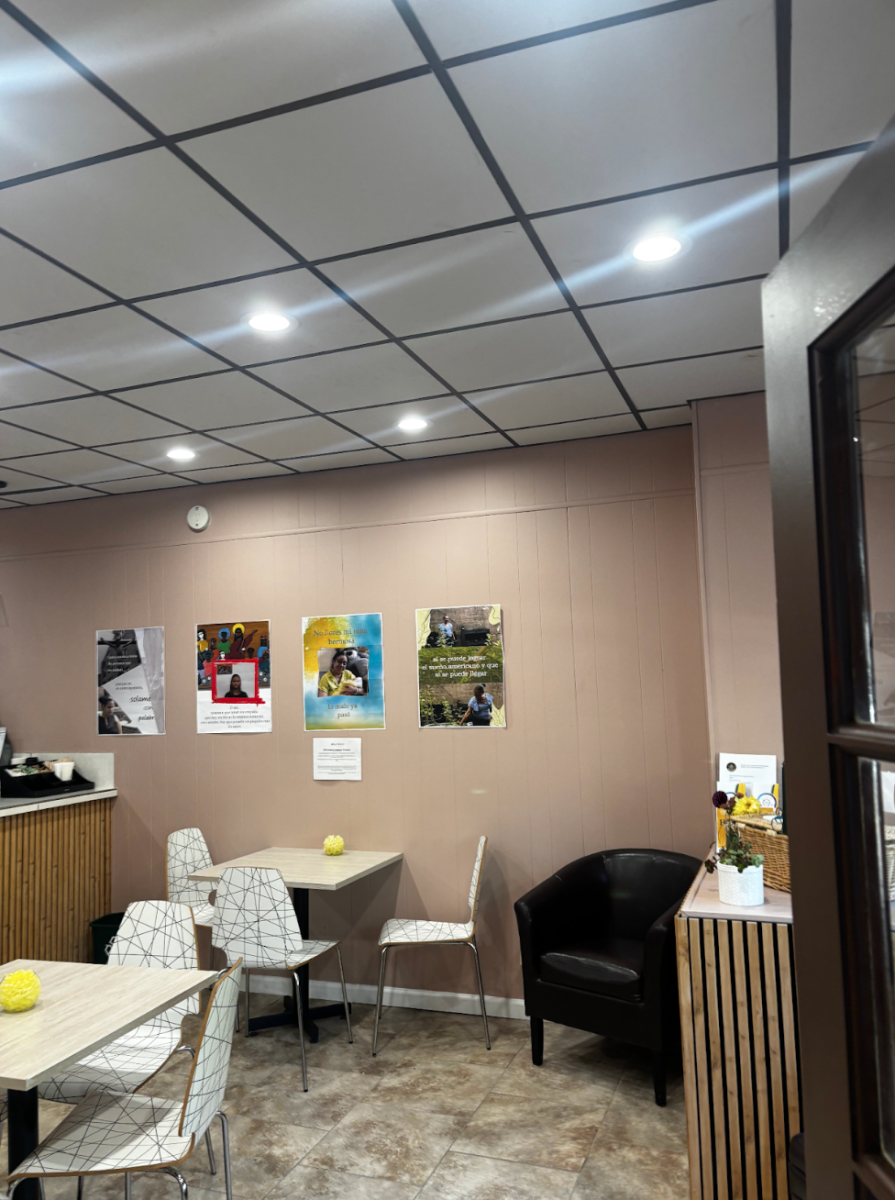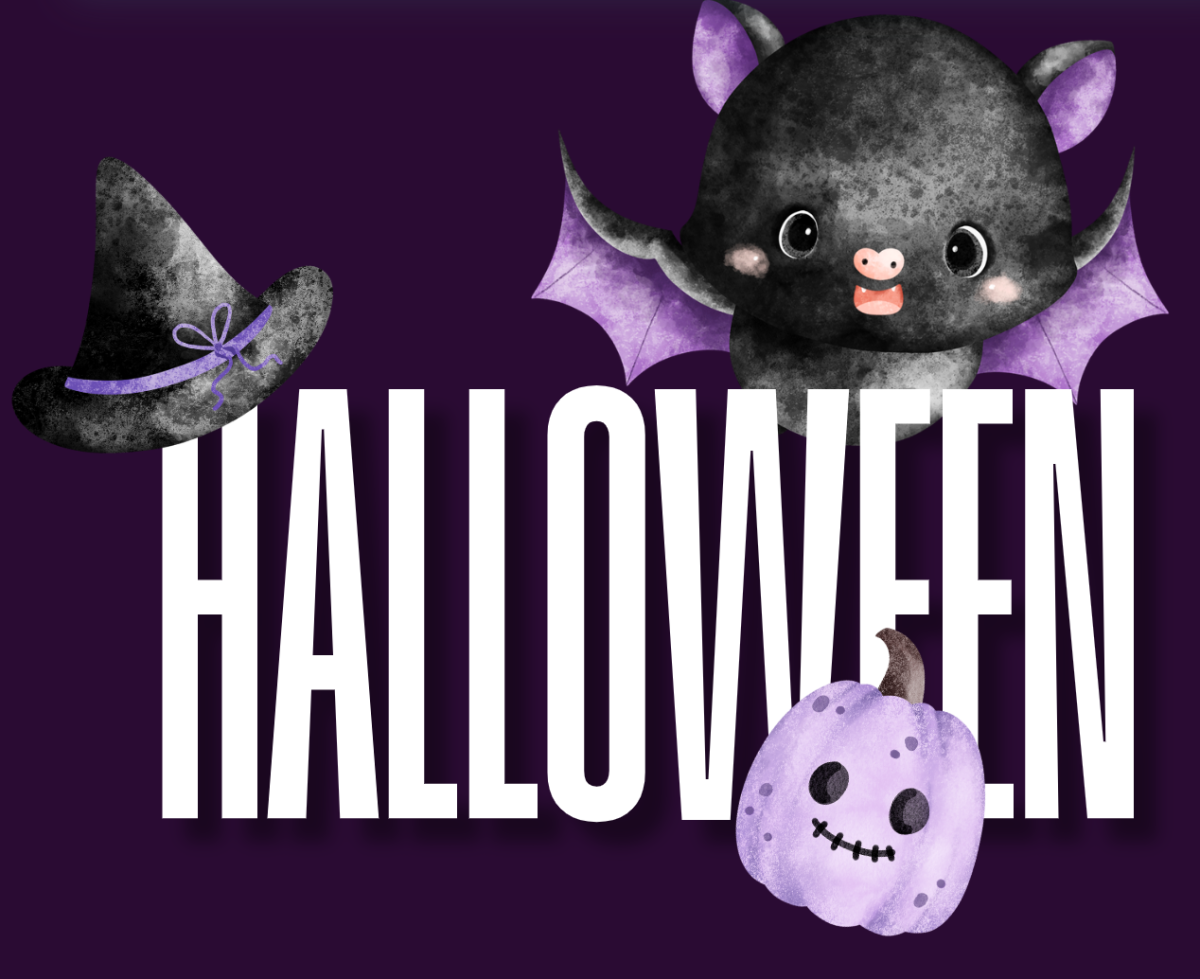The vibrant energy of Fordham University’s Lincoln Center stage was electrified by the performance of “The Wedding Gift,” a theatrical masterpiece that left the audience puzzled but understanding at the same time. The production, displayed from April 11-20, featured a talented cast of graduating actors and rising stars and transcended the boundaries of conventional storytelling, delivering an otherworldly experience that resonated long after the final curtain call. Each actor brought a unique depth to their character through their gestures. This ultimately enriched the overall performance.
Performed with an environment that consists of an unidentified language spoken throughout, “The Wedding Gift” drew viewers into a mysterious universe. The story starts off with Nahlis and Beshrum’s wedding, where no gift seems appropriate until they receive an unusual one: a human pet whose six-year-old daughter Hannah is waiting for him at home. A fascinating performance of love, sacrifice and the intricacies of human connection is initiated by this unusual gift.
Crafting a performance where the cast spoke an entirely fabricated language was a challenging feat, yet the cast of “The Wedding Gift” executed it with remarkable finesse. Despite the unknown meaning of the language, the actors managed to immerse the audience completely in the scenes. Through their expert use of body language, facial expressions and emotive gestures, the cast effectively conveyed the nuances of the story, ensuring that every audience member felt connected and engaged throughout the performance. It was a testament to their skill and dedication that, despite the linguistic barrier, the narrative unfolded seamlessly, allowing us to understand and empathize with the characters on a profound level.
The story delves deeply into issues of love, sacrifice and the quest for belonging. The cast of “The Wedding Gift” takes spectators on a journey of change and discovery through enthralling stories and fascinating performances, leaving them speechless with amazement and admiration. Long after the last bow, the in-depth examination of these subjects continues to ring true, encouraging reflection and discussion.
One of Fordham’s graduating actors, Asa Nestlehutt, FCRH ’24, portrayed Beshrum and illuminated the stage with a larger-than-life presence. Nestlehutt’s performance captivated the audience from the moment he stepped into the spotlight with his black boots. His portrayal of Beshrum added comedic tones to the play’s overall performance and kept the audience entertained whenever he entered the visibility of the audience.
Caroline Pastilha’s portrayal of Kamsuh was nothing short of phenomenal. Constantly speaking in an amazing tongue, she allowed the audience to understand what she was saying with just her gestures alone. I believed Kamsuh to be a stubborn and strict mother to Nahlis — yet it can be up to anyone’s interpretation. Pastilha’s mesmerizing performance breathed life into the character, showcasing her versatility and skill as an actress.
Making his main stage debut was actor Cade Parker, FCRH ’26, whose portrayal of Doug was a revelation. Parker’s raw talent and natural charisma shone through in his performance, commanding the stage with confidence and poise. From entering the stage as a degraded lifeless being, he made his way to the top through his understanding of others’ emotions around him. In this play, Doug is the “pet-like” being and also the gift given to the couple at their wedding. Parker’s portrayal of Doug brought a refreshing energy to the production, injecting humor and heart into the narrative.
Doug’s character gives the audience time to pause and reflect on how we treat others based on social hierarchy. The audience is put in a position as to whether or not they should be trusting and accepting of others who are different from you. Should Doug just accept the fate that he was given? Should he trust this new family that he belongs to? These questions end up being answered in a surprising twist ending that leaves a good impression on the audience that stays long after you leave the theater.
Arden Carethers, a first-year international transfer student, made her mainstage debut with a captivating performance as Nahlis. Her performance was a testament to her talent and dedication, earning her praise from the audience. The main female role can be challenging to bring light to yet, Carethers made this difficult task look easy.
In conclusion, Fordham’s production of “The Wedding Gift” stands as a testament to the power of theatre to transport, inspire and transform. With a talented cast, innovative staging and a compelling narrative, the amazing performance leaves an indelible mark on the hearts and minds of all who experience it.










































































































































































































